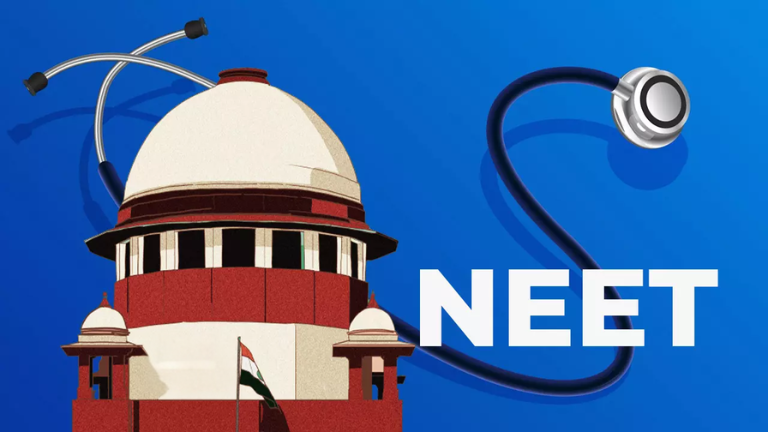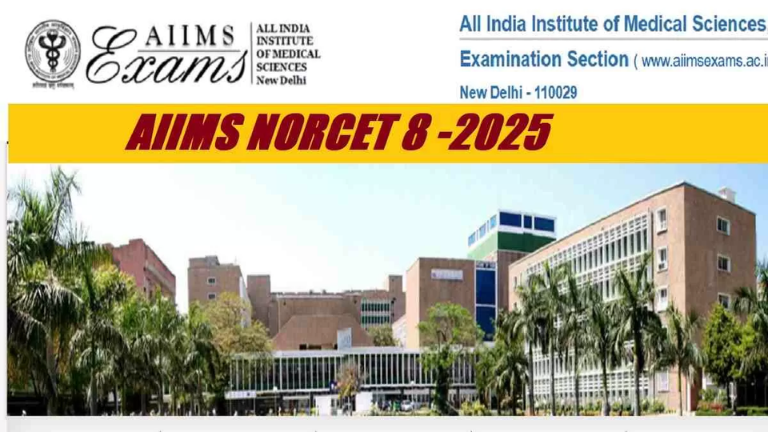NEET UG Qualification Mandatory for Studying Medicine Abroad, Rules Supreme Court
Court Rejects Petitions Challenging the Rule, No One-Time Exemptions Granted
In a significant judgment, the Supreme Court of India has upheld the requirement for Indian students to qualify NEET UG (National Eligibility cum Entrance Test – Undergraduate) before pursuing MBBS abroad, if they intend to practice in India. The ruling dismisses multiple petitions challenging the regulation and confirms that there will be no one-time exemption for students who had taken admission without clearing NEET UG.
The landmark decision reinforces the importance of maintaining uniform standards in medical education for students planning to study medicine overseas and later practice in India. The court ruled that the requirement, introduced in 2018 by the Medical Council of India (MCI), is a valid and transparent measure that ensures Indian medical professionals meet a minimum standard before being eligible to practice in the country.
NEET UG: A Mandatory Gateway for MBBS Aspirants
The NEET UG exam is the common entrance test for admission to medical colleges in India, regulated by the National Medical Commission (NMC) (formerly MCI). In 2018, the MCI made it compulsory for students who wish to study MBBS abroad to qualify for NEET UG before securing admission. This was aimed at ensuring minimum competency standards for students aspiring to pursue a medical career in India.
However, some students who took admission abroad after 2018 without qualifying for NEET UG challenged the regulation in court, seeking exemption from the rule. They argued that the requirement was not properly legislated under the Indian Medical Council Act, 1956 before being implemented.
The Supreme Court, however, rejected these claims and upheld the validity of the regulation, affirming that the Medical Council of India (MCI) had the legal authority to enforce the rule.
Why NEET UG is Mandatory for Medical Students Abroad?
The court clarified that the requirement for NEET UG aligns with the Graduate Medical Education Regulations, 1997, which emphasize the need for a common standard of assessment for all medical students, regardless of where they pursue their degrees.
Key Reasons for Making NEET UG Mandatory for Studying MBBS Abroad:
✅ Ensuring Competency – The rule guarantees that students meet a basic level of medical knowledge and aptitude before enrolling in medical courses abroad.
✅ Standardization of Medical Education – The measure maintains a uniform benchmark for all Indian students, ensuring they receive education comparable to Indian medical institutions.
✅ Preventing Unqualified Doctors – Many students who pursued MBBS abroad in non-English-speaking countries with lower academic standards struggled to clear the Foreign Medical Graduate Examination (FMGE), leading to an increasing number of unqualified doctors.
✅ Safeguarding Public Health – By mandating NEET UG, authorities can ensure that only competent medical professionals practice in India, thereby upholding patient safety and healthcare standards.
Supreme Court Rejects Exemption Requests
Many students who took admission abroad between 2018 and 2021 without clearing NEET UG had approached the Supreme Court seeking a one-time exemption from the rule.
However, the bench categorically denied any relaxation, stating:
“Students who have taken admission in foreign medical institutions after the amended regulations came into effect must comply with the rule. There cannot be an exemption for a particular batch of students, as it would defeat the purpose of having a standard entry-level qualification.”
This ruling means that students who enrolled in MBBS programs abroad without clearing NEET UG will not be allowed to take the Foreign Medical Graduate Examination (FMGE) in India. Without FMGE clearance, they cannot obtain a license to practice medicine in India.
Who Needs to Qualify NEET UG?
The ruling only applies to students who intend to return to India for medical practice after completing their MBBS abroad.
- Students who want to study MBBS abroad but do not intend to return to India for practice are not required to appear for NEET UG. They can continue their education and work in other countries based on local licensing requirements.
- The ruling does not affect students pursuing medical education in India, as they are already required to qualify NEET UG for admission to medical colleges.
Concerns Raised by Students and Parents
While the ruling aims to strengthen medical education standards, it has disappointed many students and parents who had hoped for a relaxation of the rule.
A student who had taken admission abroad in 2019 without clearing NEET UG expressed concerns:
“I was not aware of the rule at the time of admission. Now, after completing three years of MBBS abroad, I am being told I cannot practice in India. This is unfair to students like me who had no clarity on the regulation earlier.”
Parents have also questioned why Indian authorities allowed students to enroll in foreign universities without a strict verification process if NEET UG was mandatory. Many have urged the government to provide better awareness and counseling for students aspiring to study MBBS abroad.
Future Implications of the Supreme Court Ruling
With the Supreme Court’s decision, it is now clear that NEET UG is the only gateway for Indian students pursuing MBBS abroad and planning to return for medical practice in India.
Key Takeaways from the Judgment:
✔ NEET UG remains mandatory for MBBS aspirants planning to study abroad and return to India.
✔ No one-time exemption granted – students who took admission without qualifying NEET UG cannot practice in India.
✔ Students can still study and work in foreign countries if they meet the destination country’s eligibility criteria.
✔ Future medical aspirants must carefully follow regulations before enrolling in foreign universities.
What Should MBBS Aspirants Do?
🔹 Students planning to study MBBS abroad must qualify for NEET UG before applying for admission.
🔹 Parents and students should check the eligibility criteria for medical practice in India before choosing a foreign university.
🔹 Seek guidance from education consultants and official government sources to avoid misinformation about foreign medical education rules.
Conclusion
The Supreme Court’s ruling on NEET UG as a mandatory requirement for MBBS abroad reinforces the importance of maintaining high medical education standards for Indian students. While it ensures that only qualified doctors enter the Indian healthcare system, it has also raised concerns for students who enrolled in foreign universities without clearing NEET UG.
With no exemption granted, future MBBS aspirants must be well-informed about the eligibility criteria before seeking admission to medical universities abroad. As India continues to prioritize healthcare quality, aspiring medical students must prepare for NEET UG as the first step toward a successful medical career.
📌 Stay updated for more news on medical education and examination policies.




